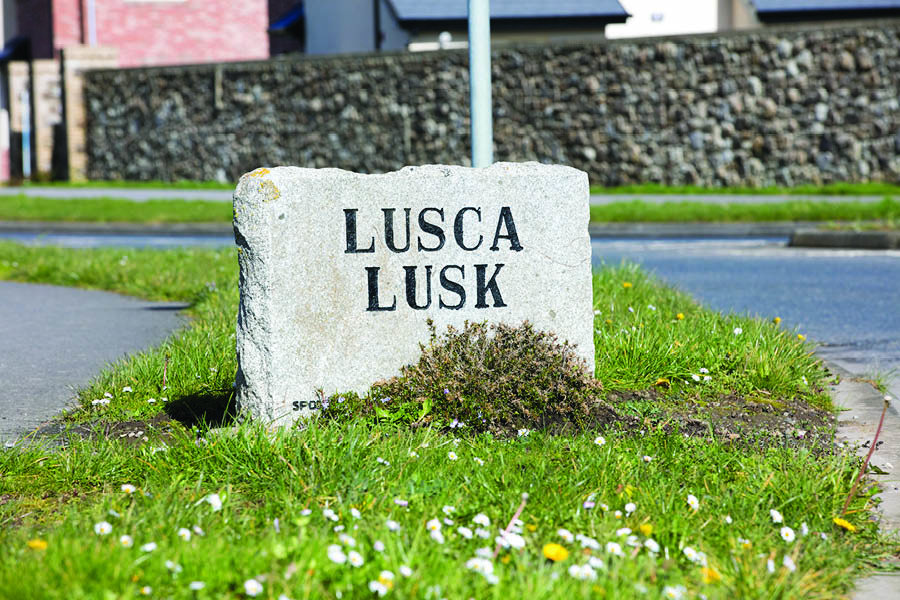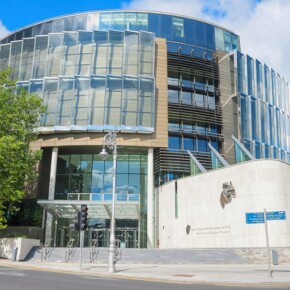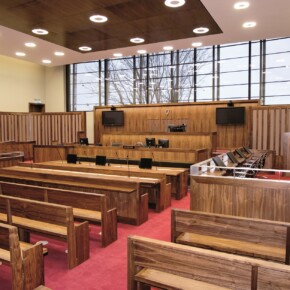Winner of Rush-Lusk is anyone’s guess
Mike Finnerty 13 Mar 2024
The 5-seater; the maker and breaker of political legacies.
Apart from “constituency redraw” there are no two words that scare someone running for election more than “5-seater”.
Rush-Lusk is our final stop in our goal to cover each and every single council constituency on the Northside of Dublin.
We will probably revisit the series again closer to June if any more candidates are added or there is a major change in the race but for now our breakdown of each constituency is coming to an end.
Without any further ado, we will unwrap Rush-Lusk and see what tricks and treats it has in store for voters in June.
Rush-Lusk came into being at the 2019 set of local elections, and at a Dáil level it sits in the new constituency of Dublin Fingal West.
If we are talking politics in Fingal, that means we have to lead off talking about Labour.
Labour’s Robert O’Donoghue topped the poll here in 2019, being elected on the first count.
His running mate on that occasion, Corina Johnston, was the last candidate eliminated on the day, lasting for 9 rounds of transfers before her race was run.
Despite this, Labour scooped a very healthy 25.6% of first preferences that day; that is a high target for Labour to meet in 2024.
In other constituencies on the Northside we have written about the party being squeezed out by Sinn Féin, Social Democrats or People Before Profit, but apart from the Social Democrats, the party doesn’t seem to be under the same pressure from other centre-left parties in this neck of the woods.
Labour will be running both O’Donoghue and Johnston again in June; one incumbent, and one nearly-successful candidate looking to build on a decent showing from 2019.
The wildcard in Rush-Lusk is Sinn Féin, who are looking to get their candidate Patrick Roche elected.
Roche was selected by the party in late February to contest the seat for Sinn Féin, and if there is any voter base Roche will attempt to appeal to it is Labour’s.
When Sinn Féin were polling high 6 months ago it appeared that people were set on voting for the party rather than the candidate; considering their modest decline in the polls in recent months, the candidate will now become important for voters as they make their way to the doorstep.
Roche states in his election literature that he is a history and social policy student, has worked in the constituency office of TD Louise O’Reilly and established a Sinn Féin working group in Lusk.
Sinn Féin didn’t even crack 5% of the vote last time out, so the only way is up for the party in Rush-Lusk.
The Social Democrats can be fairly assured in getting Paul Mulville re-elected in June; the last candidate elected in 2019, the Social Democrats are poised to put in a strong performance in June at the expense of the Greens.
Since 2019, Mulville ran for the party in the 2020 general election in what used to be Dublin Fingal, so having some name recognition with voters is always a bonus for candidates.
Mulville was elected onto Fingal County Council alongside Cian O’Callaghan in 2019, marking their first seats on Fingal County Council.
Mulville boasts the virtue of being a sitting member of Fingal County Council, the name recognition among locals, and the party being transfer-friendly.
Speaking of incumbents being at an advantage, there is perhaps no bigger name in Fingal politics than independent Councillor Cathal Boland.
Boland has been involved in local politics in some shape or form in Fingal since the 1980s, previously serving as Mayor of Fingal County Council and championing a number of schemes at a local level such as the establishment of a local volunteering scheme.
Boland is a politicians politician, and while he was under the Fine Gael banner for many years he currently attracts just as much support as an independent politician.
A well-respected local politician with many years of experience behind them is hard to beat, and while Boland may not be a poll-topper, he is still one fo the most dynamic and assured candidates on the ballot come June.
Fianna Fáil will be running their two incumbents; current Mayor of Fingal Adrian Henchy and Brian Dennehy.
Like Labour, Fianna Fáil are historically strong in the area.
Fianna Fáil’s data will show that they attained nearly 25% of first preference votes in 2019, and that is a reachable target for both candidates in June.
Fianna Fáil ran two candidates and won in 2019, while Fine Gael ran two candidates and failed to get anyone elected in 2019.
If you were placing bets on a Government party to win in Rush-Lusk, it’s Fianna Fáil.
Fine Gael were unsuccessful in getting their two candidates elected last time out, so have opted for just one candidate.
Assistant to Senator and European candidate Regina Doherty, Eoghan Dockrell said that should he be elected to Fingal County Council he will combat the “lack of vision” that he thinks is currently plaguing the Northside.
He spoke of the need to reform local politics, and that members of councils across Ireland should be more involved in the day-to-day running of the council instead of the executive arm.
With Ireland’s local democracy being gradually stripped of its powers ever since the Local Government Act of 2014, Dockrell could strike a chord with the average voter who is realising that their council doesn’t work for them the way it used to or should.
The Green Party’s strong 2019 showing across Ireland didn’t translate to a seat in Rush-Lusk, attaining 4.7% of first preferences, but the party will be running Suzanne Young in the seat.
Young states in her bio that despite her background in finance, she wants to make energy policy tangible for the average person having worked with the party on their energy policy.
She states that she wants to develop off-shore wind development in the area and develop active travel routes in North Dublin should she be elected.
As we have stated, the Greens are likely to be the party that will lose the most from June’s local elections, but in the context of Rush-Lusk it means roughly 1-2% of first preference votes are up for grabs that weren’t there before.
Predicting how the constituency will shape out is difficult; Labour getting 2 elected here would show there is life in the old dog yet, Fianna Fáil and Fine Gael having 3 Councillors between them in a 5-seater would look good heading into an election year and Sinn Féin getting someone elected will prove that the move to centre ground is paying off.
However it pans out, it will be mighty entertaining to watch.











